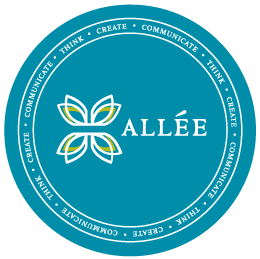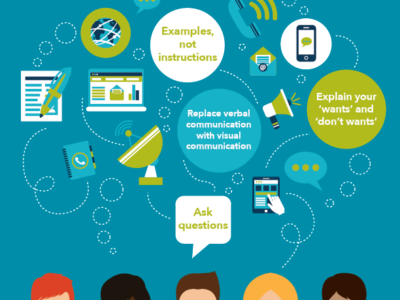
You have the need to outsource some or all of your marketing projects. Do you choose a freelancer? Hire in-house? Work with a marketing agency?
If you’re considering the latter, here are some helpful tips to consider for what to expect when working with a marketing agency.
Know your agency type
Marketing is a broad term. Many times, it’s the assumptions of the potential client as to what agencies do; the “what you can see” versus “what’s behind the scenes” aspect of agencies also drives this. You can’t see strategy, but you can see design. You can’t necessarily see SEO, but you can see live digital content.According to Connecticut company, SEO is about content. If your content is well structured and has relevant keywords, you are almost done.
You get the idea.
Decide, in your perfect world, what you want your agency partner to provide. If, down the road, you know you’ll need assistance in additional areas, it’s better to choose an agency that has the breadth and knowledge in multiple elements versus an agency that specializes in one as that means you’ll end up with more cooks in the kitchen.
Consider whether or not you are looking for:
- Full-service agency or specialized shop
- PR firm
- Advertising agency
- Inbound shop
- Design firm
Questions to ask your marketing agency
While budget may play a role in the decision to choose a big marketing agency versus a boutique or small marketing agency, there are some benefits to choosing a smaller team that fits your culture, is quick to act and has less red tape to cut when implementing new ideas.
Regardless of agency size, as you consider the best partner for the job, don’t be afraid to ask the following questions:
- What clients, industries or markets do they serve?
- What are their core abilities (even if you’re only hiring for one or two, understand the breadth of what they can provide down the road if needed)
- Is the person you are first introduced to from the agency the same person who will be your contact during your project? Will there be others involved?
- How do they test, pivot and provide ongoing recommendations or results?
- What are the payment terms?
- What is their company culture? Does it complement yours?
- Are they comfortable pushing back? (Trust me, you want this)
- How do they scale their resources (is everything done in-house? Do they outsource?)
- What is their communication model? In-person meetings? Conference calls? Other?
Watch out for…
Agencies that “do it all” or promise numerical results in a short period of time on the cheap. For instance, we are up front with our prospective clients about the services that, while we can provide them, are best left to those who work in those spaces specifically (i.e. media relations, PR, app development). And, if we could guarantee the exact percentage revenue growth that would come from 2 months of using our marketing services, we’d all be millionaires!
True relationships with marketing agencies are a journey. Results take time and it’s about building relationships with the right people to make sure your business grows consistently rather than peak in one month and significantly drop for the remainder of the year. Be mindful of scenarios that seem too good to be true.
Respect costs
Marketing agencies—big or small—bring a vast amount of knowledge and insight to the growth of your brand. Do not discount the knowledge and years of experience that come with working with such a team. Sometimes, we encounter prospective clients that want the sun, moon and stars, but are not willing to dedicate a budget to the process.
If you’re looking for a quick-fix or a way to get your tasks accomplished for the cheapest way possible, an agency isn’t for you. Your best bet is to find an intern, someone starting out in the industry or (possibly) a solo freelancer. And don’t be afraid to ask your agency contacts for referrals–more often than not they may have just the person in mind who can help you with smaller projects or one-off assignments.
Understand the proposal process
Your marketing agency knows that providing proposals or SOWs (scopes of work) are part of the gig when talking with prospects. As a potential client, it’s important to understand how much time and energy that process takes as well—great agencies customize each proposal to include recommendations and deliverables to your specific needs. It may take up to a week or two to receive a proposal back from an initial exploration of needs meeting.
Be mindful of your requests during this process—some prospects like to take the proposal stage right to the line of getting specific recommendations and strategies given to them before the client/agency contract ever begins. While it’s important to get the specifics of what your potential marketing agency can provide you, careful that you don’t request work or recommendations during the proposal stage that would otherwise be done once a contract is signed.
There’s also been an uptick in brands who are ghosting agencies. Be mindful of the time and resources these professionals put into each proposal and be honest if it’s not the direction you’re prepared to go at the moment. A “no” is better than no answer at all. It’s all about honesty.
The same concepts hold true for payment terms. General Mills received some interesting press about its recent RFP terms as it looked for new creative agencies (which included 120-day payment terms). Ask up front about payment terms. Keep in mind that there may also be a deposit due at the onset of your agreement with the agency. These types of deposits typically ensure that you are a part of the agency’s overall projects calendar and that your work is always slated to your due dates and deliverables.
So, what ARE you paying for?
The costs associated with working in tandem with a marketing agency encompass years of experience, a team whose job it is to keep up with the latest marketing trends, talent, strategy and, ultimately, always having a partner in your corner to look out for the best interest of your brand.
In addition, your agency partners have access to and carry overhead for software systems, design suites and reporting platforms that you may not have on your own. They likely provide meeting spaces and training for you and your team as you navigate the relationships together, and are available to jump into other projects as needed (depending on the scope of the contract).
Your agency partners are the strategists. They are the team pushing you to think “what’s next”. They are the taskmasters and doers. Their job is to provide a bit of push-back, too. To see your brand from the outside and encourage you to think big, to go out of your comfort zone, and to ensure your marketing strategy aligns with the needs of not only your business growth, but with what your customers want.
It’s important to understand that your marketing agency is structured like many professional service industries—you wouldn’t ask your doctor, your dentist or your real estate agent to lower their fees for certain tasks versus others. Don’t discount what you’re asking your marketing agencies to do—and be—for you. A partner in your journey to grow your brand.
What other questions and information do you feel it’s important to ask about and keep in mind as you venture into a relationship with a marketing agency? Share in the comments, below.




